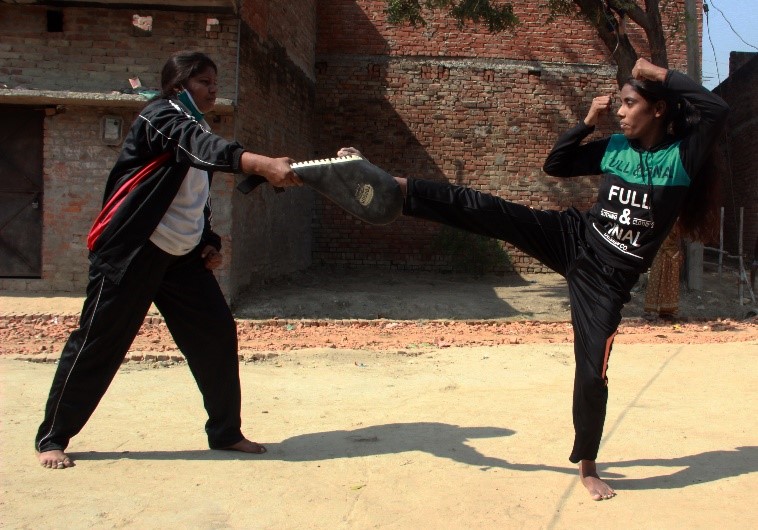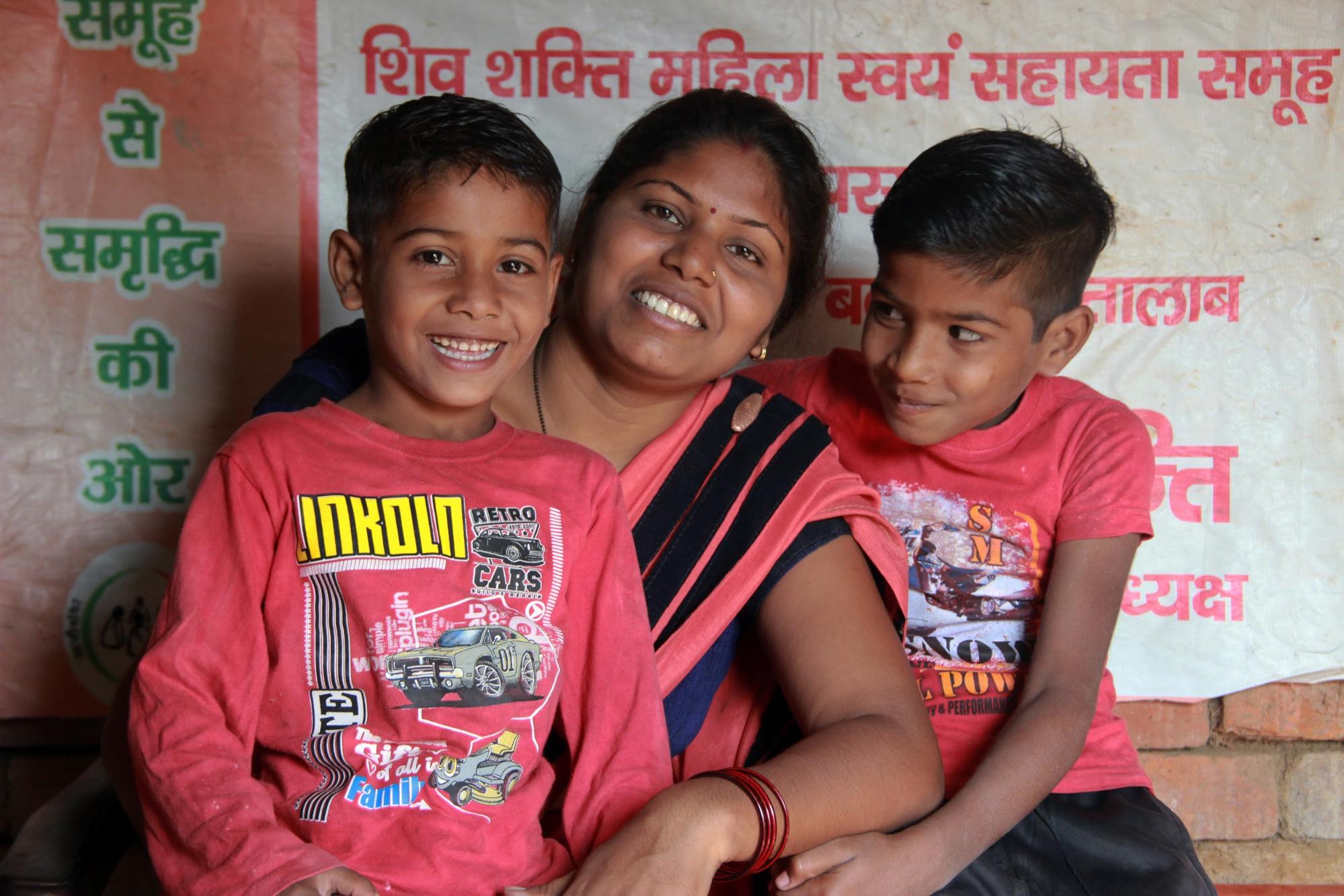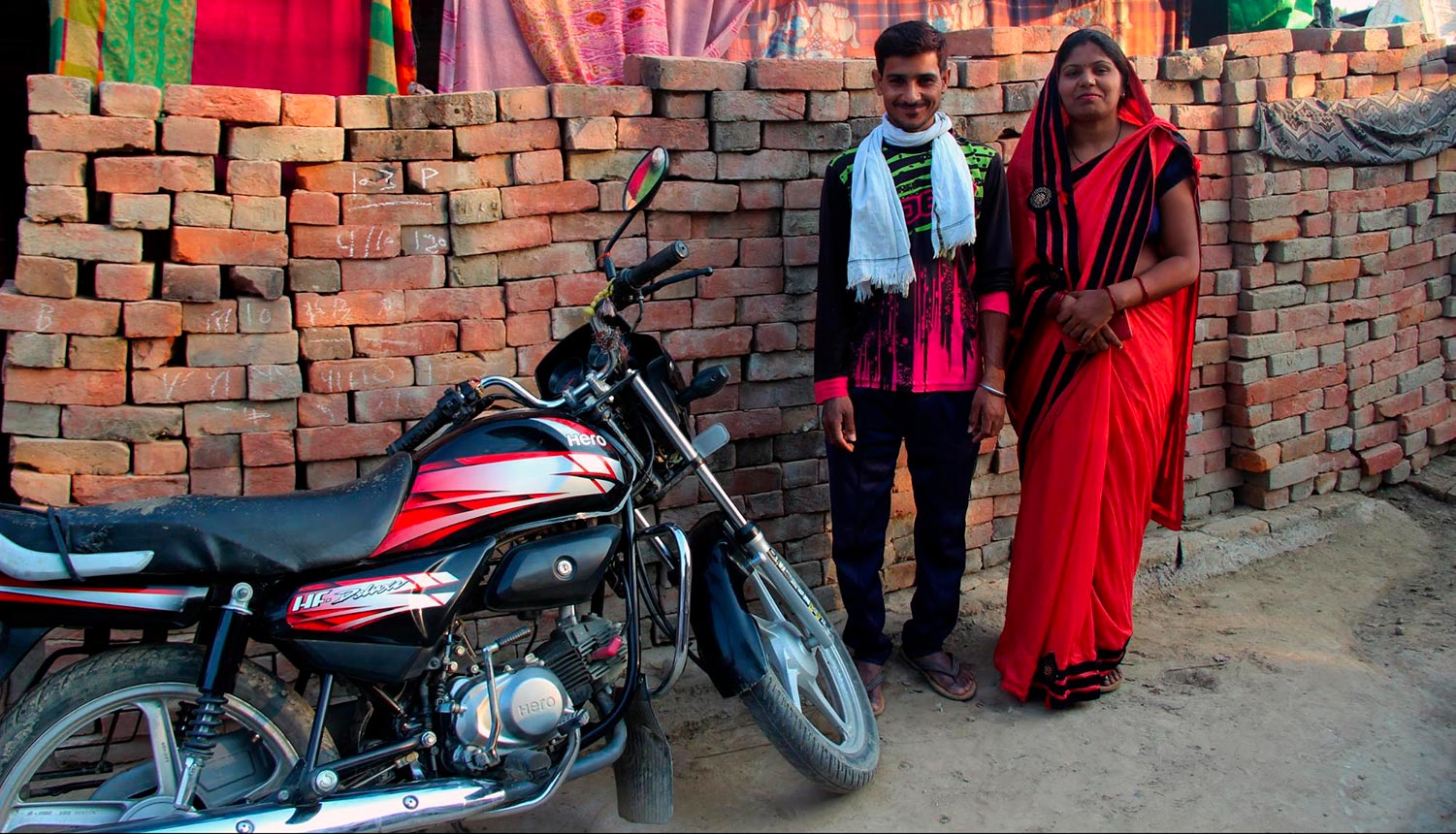
JTF wasn’t just a project for me. It became a part of my life.
It’s not very common to see a saree-clad young Indian woman, with her head covered, talking openly to other women in her village about condoms. But Mohini is not an ordinary individual. Spend some time with her and you’re sure to be inspired by her passion. By breaking all kinds of gender norms, Mohini is transforming the lives of hundreds of women and adolescent girls in and around her village in Lucknow.
"I always wanted to do something in life. After I got married, I decided to fight for myself. I would tell myself that I am going to find a solution and do the things I want to do."
The opportunity came when her younger son was two, and she heard about a government scheme to support women from low-income families by recruiting them as Community Resource Persons. This was an opportunity Mohini was not going to miss. Under the scheme, she had to create Self-Help Groups (SHGs) to help women living in the villages generate livelihood opportunities. With her son in tow, she went from village to village recruiting local women for the groups. She created more than twenty SHGs in fifteen villages and helped more than 500 women and girls.
This work led her to apply to become a mentor at the Family Planning Association of India (FPA India) for an IPPF Japan Trust Fund (JTF) project starting in 2018. During her interview, she was asked if she would be able to talk about reproductive health issues, as the other interviewees didn’t seem comfortable with the subject.
“A person who is educated and intelligent can talk about HIV and safe sex without any shame. These are health-related topics,” she said. She got the job.
“I don’t see social issues in silos”
T
his ambitious ‘Community Action for Sustainable and Inclusive Growth’ project aimed to empower women from marginalized communities to realise their sexual and reproductive health and rights and to improve their employable skills through income generation programmes.
Mohini’s role focused on increasing access to sexual and reproductive health services through a gender equality approach. She started by finding the right contact in each village, understanding the needs of local people, and making an intervention plan. Additionally, she would regularly speak to them on critical topics like safer sex, family planning, safe abortion, HIV, domestic violence, menstrual hygiene, and the social stigma attached to such topics.
JTF wasn’t just a project for me. It became a part of my life. It provided me with the right tools to support people in every way. It covered all aspects of women’s empowerment. We see projects working in silos, but you can’t see social issues as stand-alone challenges. With an implementing partner like FPA India, which has a very good grasp of health issues in the region, the impact of the project has been exceptional.
To support women facing violence at home, Mohini created a ‘Women’s Action Group’ (WAG) which included local men. The WAG members were trained to talk to the families of women who had experienced sexual and gender-based violence and help them resolve their issues. Even though Mohini's work has primarily been with women, she understands the importance of working with men on these challenges.
While working with young girls in her community, Mohini encourages them to look at sexual and reproductive health not as a ‘sin’, as some members of the community call it, but as a medical topic.
Social stigma
I
f you go to Mohini’s house, chances are you will find many women and girls from her own and nearby villages learning different skills. It wasn’t always like this. There was a time when families would not allow their daughters or wives to visit her.
Since I worked with male colleagues and travelled to different states for training sessions, my neighbours in the village would say I had ‘low morals’. They would say mean things to my husband too. But, if they are comfortable seeing the ads for condoms or sanitary napkins on TV, then how am I shameless by talking about these topics?
People from her village would ridicule her when she wore a t-shirt and tracksuit instead of a saree to go for self-defence training sessions. At times when she felt low, Mohini’s love of Bollywood songs helped her lift her mood.
The impact on Mohini’s family
A
s a mentor, Mohini received a modest sum as a stipend from the JTF project. Though small, it allowed her to contribute to gradually building two simple rooms and a kitchen in her formerly kutcha (rough) family house. She also invested in her education.
The JTF project helped me complete my dream of education. I finished high school, and currently I am in the final year of my undergraduate degree in social work. I also want to pursue a Masters in the same field.
In January 2020, seeing how local people were relying solely on agriculture to make a living, Mohini started a skills development centre in her own home to create alternative income opportunities. She began by training women and girls to make incense sticks and learn to sew.
In the future, Mohini wants to expand her centre to include other kinds of training opportunities, and is currently trying to find money to make it sustainable.
Even after the JTF project ended in India, Mohini is building on the work of the past years. She is planning to go to an urban slum in Lucknow to help women there register their own self help group. “Motivation doesn’t necessarily need money,” Mohini says with a smile.
Profile
M
ohini grew up in an underprivileged family in Lucknow city in northern India. The eldest of the three, she started supporting her family financially by embroidering clothes when she was just 13. As well as taking care of her two younger brothers, Mohini was also responsible for household chores and had little time for her studies. Despite her longing to pursue higher education, she was married before she could complete high school. Her financial struggles continued after her marriage as well.
After working as a Community Resource Person to implement the schemes of the government, Mohini got to know about the JTF project. Since 2018 she has been working as a mentor in Lucknow.
Although the JTF project support ended in March 2020, she is generating her own income from the production of incense sticks.
Published on 2 February 2021
when













